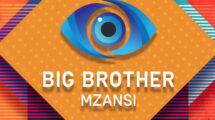Watch: Celebs read books in unfamiliar language
Nal’ibali collaborated with SA role models and public figures to highlight the importance of mother tongue languages in children’s literacy development.
By asking participants to read a children’s story in a language they didn’t understand, Nal’ibali highlighted the challenges faced by many young children as they struggle, on a daily basis, with books and stories written in unfamiliar languages. The project was launched on International Tongue Language Day, Saturday 21 February.
“Regular interaction with interesting and challenging books and stories in home languages allows children to build a deep understanding of their mother tongue. This ensures a firm foundation for learning not only an additional language, but for all other school learning too,” explains Carole Bloch, Director of PRAESA (The Project for the Study of Alternative Education in South Africa) which is running the Nal’ibali campaign.
“All children, and not only English speakers, deserve significant exposure to the finest of locally written and international literature in their first languages. Until we achieve this, we continue to disadvantage learning opportunities for the majority of children in South Africa,” Bloch continues.
Suezelle, Zolanie Mahola read in a language they don’t understand
Showing just how meaningless receiving news and information in a language you don’t understand can be, South African public figures including YouTube sensation, Suezelle DIY, actress and Freshlyground lead singer, Zolani Mahola, as well as soccer players Cecil Lolo and Ziyaad Eksteen from Ajax Cape Town Football Club all had a turn to be filmed reading a story in a language they did not know.
“It is of utmost importance to me that my child speaks the language of his mother and the people who came before her. For him to have access to the rich culture from which I came would be one of the biggest gifts I could ever pass on to him and reading in his mother tongue would open the windows of that world even further to him,” commented Mahola on the day.
Radio stations also supported the campaign
Taking up the challenge, and reading snippets from a story in the ‘wrong’ language on air, national radio stations RSG, SAfm and Umhlobo Wenene FM, who typically broadcast in Afrikaans, English and isiXhosa respectively, surprised their listeners and helped spread the message even further.
“It takes many years to learn your mother tongue well and reading and talking about books in your home language enriches children’s language enormously. So, to help your children have the very best chance of success at school, the golden rule is to start talking and reading to them in their mother tongue/s when they are babies and keep doing this throughout their lives, even as they learn other languages at school,” concludes Bloch.
And, for those wanting to access children’s stories and other literacy materials in a range of SA languages, they need look no further than the Nal’ibali reading-for-enjoyment supplement. Issued each week during term time, the supplement is the only fully bilingual resource of its kind offering children’s stories, literacy activities as well as reading tips and support in four different language combinations.
To see Video click here



